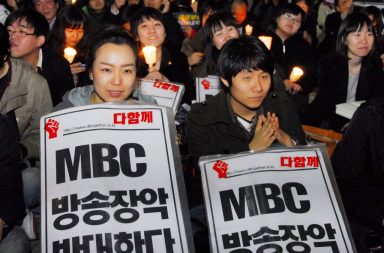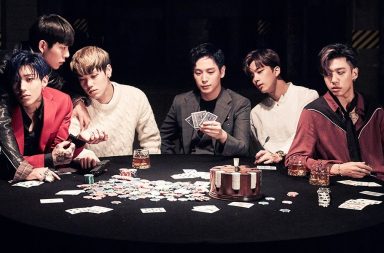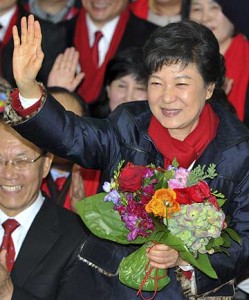 South Koreans made history on Wednesday, December 19 as they elected the country’s first female president, 60-year-old Park Geun-hye, in a hotly contested election that saw Ms. Park take away 51.6% of the popular vote to progressive candidate Moon Jae-in‘s 48%. Ms. Park’s somewhat surprising victory came alongside one of the highest voter turnouts in South Korean electoral history (75.8% of the population) and represents a boost for the conservative Saenuri Party (Grand National Party), of which outgoing president Lee Myung-bak is also a member. Ms. Park’s inauguration will take place in late February of next year.
South Koreans made history on Wednesday, December 19 as they elected the country’s first female president, 60-year-old Park Geun-hye, in a hotly contested election that saw Ms. Park take away 51.6% of the popular vote to progressive candidate Moon Jae-in‘s 48%. Ms. Park’s somewhat surprising victory came alongside one of the highest voter turnouts in South Korean electoral history (75.8% of the population) and represents a boost for the conservative Saenuri Party (Grand National Party), of which outgoing president Lee Myung-bak is also a member. Ms. Park’s inauguration will take place in late February of next year.
Ms. Park’s election is a breakthrough for women in South Korea, which (despite its incredibly rapid modernization and current status as a developed, first-world country) has a pretty abysmal level of gender inequality; according to the World Economic Forum, South Korea ranks 108th in gender equality, sandwiched in between the United Arab Emirates and Kuwait. Though investment in the education of women is at an all-time high, women are still underrepresented in most major companies and are often overlooked in favor of men for promotions or wage raises. Women are also seriously underpaid, making only about 40% of the salary that men in comparable positions earn. Chauvinistic societal attitudes persist, and it was only as recently as 2007 that South Korea officially abolished the “head of household” system (known as the hoju system) that emphasized paternal ties in recording lineage and placed women in an inferior position in the family relative to a patriarch (though truly, abolishing the system on the books has done little to reverse deeply entrenched ways of thinking).
That Ms. Park was able to overcome significant odds to win the highest office in the country could possibly speak to a shift in the way women are perceived, though her rule will undoubtedly be judged in accordance with her gender — and that which is interpreted as failure does run the risk of being attributed to her femininity. Additionally, whether or not Ms. Park will be able to effect any serious change in South Korea’s gender equality does remain to be seen; though she has promised a revolution for women, she has been somewhat vague in terms of specific policy that she plans to enact. Remarkable though her election was, one must be careful not to count one’s chickens before they hatch — or, as they say in Korea, to drink the broth first in the kimchi soup.
Besides being a woman, Ms. Park also has the noted distinction of being the daughter of former South Korean president Park Chung-hee, a man whose 18-year rule was likely the most polarizing reign in contemporary South Korean history. The elder Park took power in 1961 through a military coup and declared himself president for life with the proclamation of the Yushin constitution in 1971. An authoritarian ruler who utilized oppression, terror, and sometimes even targeted assassination to rid himself of opponents, Park is also credited with implementing a series of economic policies that led to South Korea’s tremendous economic growth in the 1970s, 1980s, and 1990s. By selecting specific industries and corporations to receive tax breaks and special government investment, Park created the mega-corporations that dominate South Korean business today (think Hyundai, Samsung, and LG) and led the country to overcome post-war destitution in a scant few decades. Whether one thinks ill or well of Park, it is difficult to imagine South Korea emerging from the 1990s as a regional powerhouse and the world’s fifteenth largest economy without his rule; however, that his rule was inevitably controversial is plain fact.
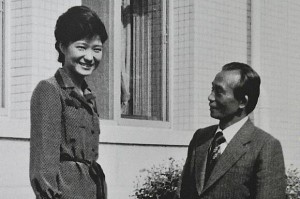 The progressive Democratic United Party led by candidate Moon Jae-in tried to capitalize on Ms. Park’s connections to a dark period in South Korean history, arguing that while she grew up like a princess in the Blue House (the Korean equivalent of the American White House), Moon was fighting against the oppressive dictatorship and languishing in prison. Indeed, Ms. Park did enjoy a great position of privilege as the eldest child of an authoritarian ruler, but her position as such did give her what many view to be invaluable political experience and a sense of unshakeable charisma and strength. Following the death of her mother, First Lady Yuk Young-su, in 1974 (she was killed by North Korean assassin’s bullet intended for her husband while he was making a speech; incredibly, even after Yuk’s body was carried offstage and the assassin detained, Park continued his speech), Ms. Park returned from studying in France to assume duties of an acting First Lady, standing by her father’s side and managing some of the government organizations that he created. So great was Ms. Park’s commitment to serving South Korea under her father that it is reported (though unconfirmed) that when she first learned of his assassination in 1979, her first words were, “Is everything secure along the border with North Korea?”
The progressive Democratic United Party led by candidate Moon Jae-in tried to capitalize on Ms. Park’s connections to a dark period in South Korean history, arguing that while she grew up like a princess in the Blue House (the Korean equivalent of the American White House), Moon was fighting against the oppressive dictatorship and languishing in prison. Indeed, Ms. Park did enjoy a great position of privilege as the eldest child of an authoritarian ruler, but her position as such did give her what many view to be invaluable political experience and a sense of unshakeable charisma and strength. Following the death of her mother, First Lady Yuk Young-su, in 1974 (she was killed by North Korean assassin’s bullet intended for her husband while he was making a speech; incredibly, even after Yuk’s body was carried offstage and the assassin detained, Park continued his speech), Ms. Park returned from studying in France to assume duties of an acting First Lady, standing by her father’s side and managing some of the government organizations that he created. So great was Ms. Park’s commitment to serving South Korea under her father that it is reported (though unconfirmed) that when she first learned of his assassination in 1979, her first words were, “Is everything secure along the border with North Korea?”
Following Park’s death, Ms. Park withdrew from public life for nearly two decades, emerging later to assume a position in the cabinet with the Saenuri Party (then called the Han Nara, or One Country, Party). She never married or had children. She has been a consistent presence in the National Assembly since her return to political life, winning election after election.
For many citizens who admired and respected Park Chung-hee, Ms. Park represents the fierce determination and incredible growth that took place in South Korea under his stewardship. However, for those who resented the dictatorship and all of the oppression that it entailed, Ms. Park is a bitter reminder of relentless conservatism, of unfair partnership between big business and government, and government censorship and oppression. This divide is incredibly well-preserved in voting trends even today; while Ms. 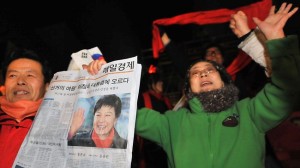 Park just came out on top in most South Korean provinces, she won North and South Gyeongsang with an overwhelming majority (her father hailed from Daegu, the capital of North Gyeongsang, and much of the industry he established in Gyeongsang cities like Busan and Pohang led to the region’s incredible prosperity). Conversely, nearly 90% of voters in the Honam provinces (North and South Jeolla), which have historically been progressive strongholds and leftist sympathizers, gave their votes to Moon. Curiously, the only other area in which Moon captured a majority was the capital city of Seoul, which is home to many progressive young people and students; indeed, Moon captured most of the young vote (consisting of individuals in their 20s, 30s, and 40s) while citizens age 50 and up voted for Ms. Park.
Park just came out on top in most South Korean provinces, she won North and South Gyeongsang with an overwhelming majority (her father hailed from Daegu, the capital of North Gyeongsang, and much of the industry he established in Gyeongsang cities like Busan and Pohang led to the region’s incredible prosperity). Conversely, nearly 90% of voters in the Honam provinces (North and South Jeolla), which have historically been progressive strongholds and leftist sympathizers, gave their votes to Moon. Curiously, the only other area in which Moon captured a majority was the capital city of Seoul, which is home to many progressive young people and students; indeed, Moon captured most of the young vote (consisting of individuals in their 20s, 30s, and 40s) while citizens age 50 and up voted for Ms. Park.
President-elect Park faces a unique set of challenges as she assumes office. South Korea clearly remains divided along regional lines and prejudices, and growing inequality demands a careful reevaluation of South Korea’s welfare policies. Additionally, there is no doubt that North Korea will look to challenge the new leader, possibly before she has even been inaugurated. South Korea is changing, and Ms. Park must work with, not against, change in order to deal with the many difficulties that she will encounter as president. We here at Seoulbeats take no political stance, but we do wish President Park the best of luck as she begins this new and infinitely more challenging leg of her political career.
(Images: [1], [2], Yonhap News, Chosun Ilbo, The Washington Post, Hankyoreh, The Park Chung Hee Era: The Transformation of South Korea [edited by Ezra Vogel and Byung-kook Kim])

